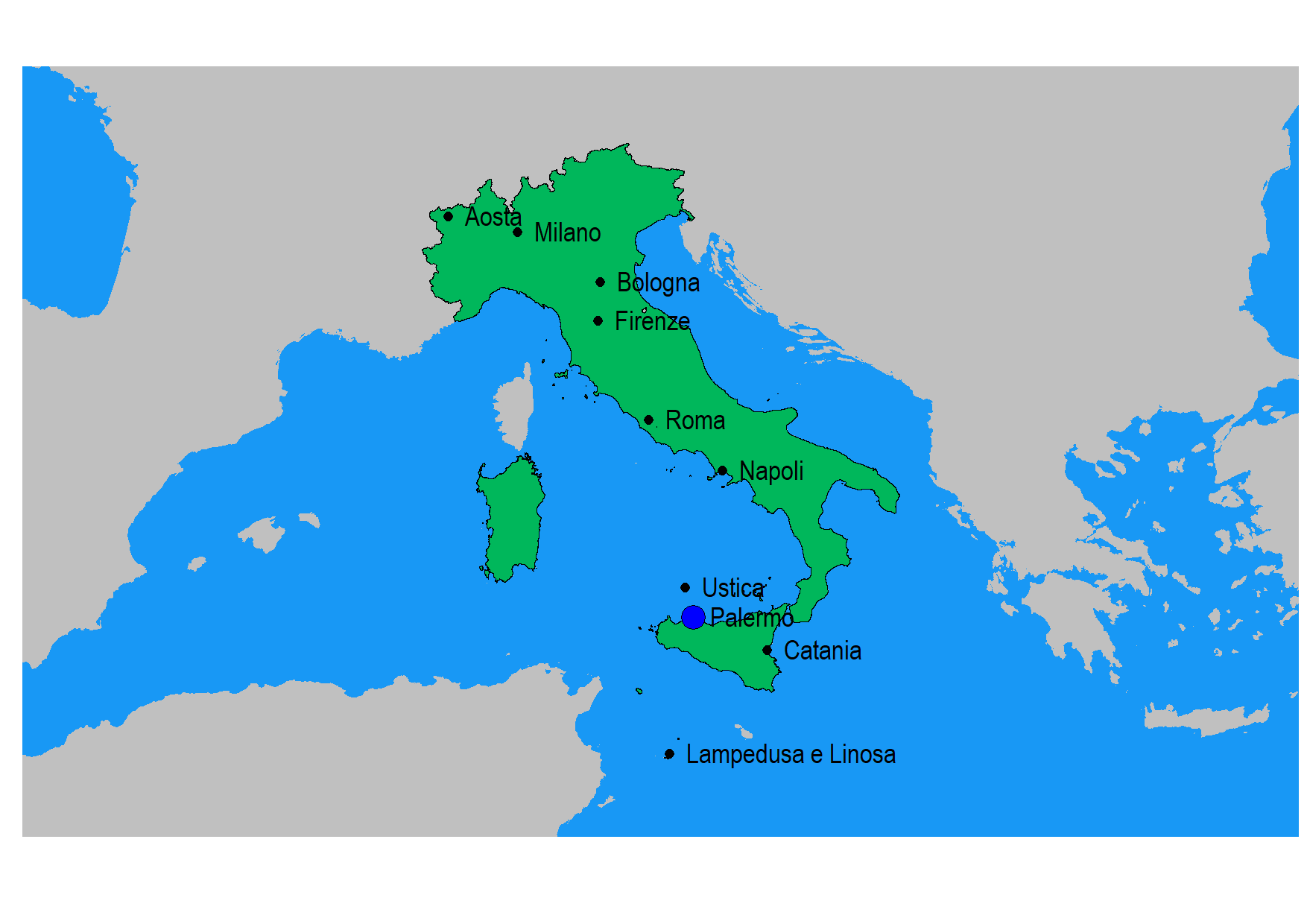INGV symposium, November 6-9, 2023 - Terrasini (Pa)
This site provides access to products of Atmospheric Carbon and Oxygen Laboratory (ACO-Lab). The site has been made accessible since 2024-01-01 and is still under development.
Atmospheric Carbon and Oxygen Laboratory (ACO-Lab)
is dedicated to monitoring CO2 emissions from both anthropogenic and natural sources. This is achieved through the integrated measurements of concentration, as well as δ13C and δ18O, specifically in urban environments.
Global climate change poses a significant threat to key sectors such as infrastructure, the economy, electricity production, international relations, biodiversity, and freshwater and food resources. Its impact varies, with extreme weather events, melting polar ice caps, rising sea levels, and intensified precipitation affecting different regions. The Mediterranean region faces ecological challenges, including reduced water availability, crop yields, increased drought risks, biodiversity loss, wildfires, and heatwaves. Urban areas in Europe, experiencing population growth and land use changes, are increasingly vulnerable, as demonstrated by recent floods in Italy, France, Greece, and Spain.
Climate change is intricately linked to the carbon cycle, particularly the exchange processes between the atmosphere and the Earth's surface in response to increased CO2 and CH4 emissions. In 2020, atmospheric CO2 concentration exceeded pre-industrial levels by 48%, primarily driven by industrialized regions like Europe, contributing at least 14% of CO2 emissions from hydrocarbon combustion.
In the next future, global population projecting to reach 10 billion by 2050 and urbanization expanding to 68%, therefore the urban areas are major CO2 sources. Studying isotopic signals from various sources like soil respiration, biomass combustion, and hydrocarbon combustion helps differentiate CO2 origins. Monitoring regional CO2 emissions, especially in urban areas, is crucial for understanding anthropogenic contributions.
 ACO-Lab site map. To reach the station pages, uses the top menu station button.
ACO-Lab site map. To reach the station pages, uses the top menu station button.
Research initiatives like the Atmospheric Carbon and Oxygen Laboratory (ACO-Lab) play a pivotal role in comprehending atmospheric processes, distinguishing natural from anthropogenic CO2 emissions, and tracking their temporal variations. ACO-Lab comprises 13 monitoring stations strategically located across Italy, encompassing diverse ecosystems. These include urban areas such as Rome, Milan, Naples, Palermo, Bologna, Florence, Catania, and Aosta. Additionally, the monitoring extends to Mediterranean islands, specifically Ustica and Lampedusa, as well as volcanic edifices like Mount Etna, Campi Flegrei, and the Colli Albani.


